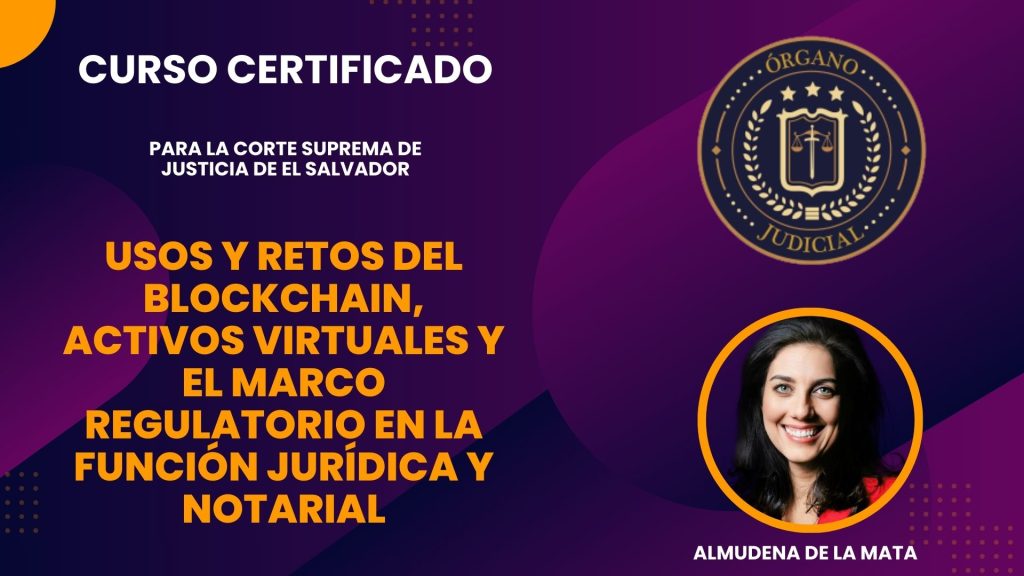
First Edition of the Certified Course on Blockchain and Smart Contracts for the Supreme Court of Justice of El Salvador
We are pleased to present the first edition of the certified course “Uses and Challenges of Blockchain, Virtual Assets, and the Regulatory Framework in Judicial and Notarial Functions” for the Supreme Court of Justice of El Salvador, in collaboration with the United Nations. This advanced course was led by Almudena de la Mata, who provided intensive training to high-ranking judicial officials and notary officers, delving into the realities of blockchain, virtual assets, and regulatory aspects, with a special focus on anti-money laundering (AML).
In-Depth Exploration of Blockchain and Virtual Assets for the Judicial Sector
The course addressed the significance of blockchain and virtual assets within today’s legal context, highlighting the need for a deep understanding of these emerging technologies and their regulatory impact. Participants explored not only the operation and applications of these technologies but also their potential to transform legal and notarial processes, enhancing transparency and security in managing digital assets and documents.
Focus on Regulatory Framework and AML
A core element of the course was the regulatory framework for blockchain and virtual assets, particularly regarding anti-money laundering (AML) policies. Participants were trained on how to effectively integrate virtual assets into El Salvador’s legal system, ensuring compliance with national and international regulations to prevent illicit activities. This focus is essential for the secure adoption of digital technologies in the judicial field.
A High-Level, In-Depth Initiative for Judicial Leaders
With an extended duration and in-depth focus, this training enables high-ranking judicial and notarial officials to develop advanced knowledge that they can directly apply to their daily work. The course emphasizes adapting technological innovations to the Salvadoran legal context, fostering a modern justice system aligned with the demands of the digital era.
Toward a Digital and Secure Justice System
As this initiative progresses, training in blockchain and virtual assets will help strengthen the judicial sector’s capabilities, providing solid tools to meet the challenges of a digital environment and deliver a more secure and transparent justice system.
